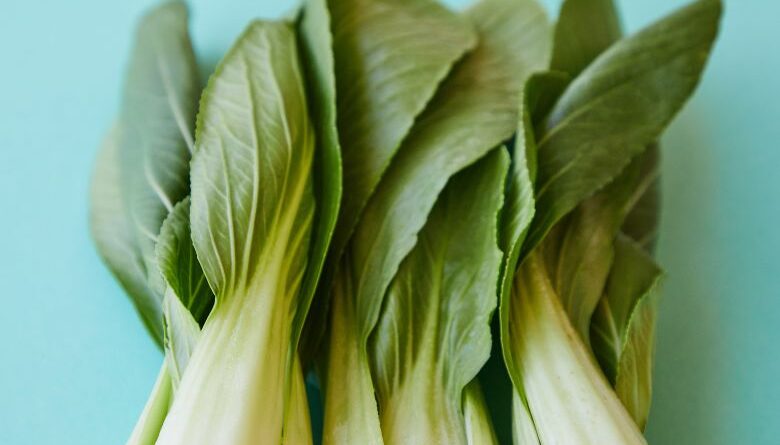The Role of Antioxidants in Fighting Free Radicals
The Role of Antioxidants in Fighting Free Radicals
Antioxidants have become a buzzword in the health and wellness industry, touted for their remarkable ability to combat free radicals and protect our bodies from oxidative damage. In this article, we will delve into the science behind free radicals, the importance of antioxidants, and how they work together to safeguard our well-being.
I. Introduction
Definition of Free Radicals and Their Harmful Effects on the Body
To understand the significance of antioxidants, it is essential to comprehend the nature of free radicals. Free radicals are highly reactive molecules that are formed as natural byproducts of various metabolic processes within our bodies. Additionally, external factors such as pollution, smoking, and ultraviolet radiation contribute to their production. These unstable molecules seek stability by stealing electrons from nearby cells, leading to a chain reaction of cellular damage.
The Role of Antioxidants in Combating Free Radicals
Antioxidants come to the rescue by neutralizing free radicals, thus breaking the harmful chain reaction. They generously donate electrons to stabilize the free radicals, preventing them from causing further damage to our cells and DNA. In this way, antioxidants act as the body’s defense system against oxidative stress and its associated health risks.
II. Understanding Free Radicals
Explanation of Free Radicals and Their Formation
Free radicals are atoms or molecules with unpaired electrons in their outer shells. These unstable entities are continually formed during normal cellular activities, such as energy production or immune responses. While our body has mechanisms to handle these radicals to some extent, an overwhelming buildup can lead to oxidative stress.
Sources of Free Radicals in the Environment and the Body
Apart from internal processes, external sources of free radicals also contribute to their presence in our bodies. Environmental factors like air pollution, industrial chemicals, and tobacco smoke introduce additional free radicals. Additionally, certain lifestyle choices, such as consuming processed foods or leading a sedentary life, can exacerbate their formation.
How Free Radicals Damage Cells and DNA
Free radicals attack the cell membrane, proteins, and even the genetic material (DNA) in an attempt to stabilize themselves. This process can lead to cell dysfunction, tissue damage, and potential mutations in DNA, which may increase the risk of chronic diseases like cancer, heart disease, and neurodegenerative disorders.
III. The Importance of Antioxidants
What Are Antioxidants and How Do They Work?
Antioxidants are a diverse group of compounds, including vitamins (e.g., Vitamin C, Vitamin E), minerals (e.g., Selenium, Zinc), and phytochemicals (e.g., Flavonoids, Carotenoids), that inhibit oxidation by neutralizing free radicals. They possess an extra electron that they can donate without becoming reactive themselves.
Different Types of Antioxidants Found in Food and Supplements
Antioxidants can be classified into water-soluble and fat-soluble compounds. Water-soluble antioxidants, such as Vitamin C, reside in the watery compartments of cells, while fat-soluble antioxidants, like Vitamin E, protect cell membranes from lipid peroxidation. A diet rich in fruits, vegetables, nuts, and whole grains provides a broad spectrum of antioxidants.
Benefits of Antioxidants for Overall Health
The benefits of antioxidants extend beyond neutralizing free radicals. They play a crucial role in supporting the immune system, reducing inflammation, and promoting healthy skin. Some studies have also suggested that antioxidants may help slow the aging process and enhance cognitive function.
IV. Foods Rich in Antioxidants
List of Antioxidant-Rich Foods
When it comes to obtaining antioxidants from the diet, nature provides us with an abundant array of options. Blueberries, spinach, kale, broccoli, oranges, strawberries, and nuts are just a few examples of antioxidant-rich foods that can enhance our well-being.
How to Incorporate These Foods into a Balanced Diet
Incorporating antioxidant-rich foods into our daily meals is easier than it may seem. Starting the day with a fruit-packed smoothie, adding colorful veggies to salads and stir-fries, and swapping unhealthy snacks for a handful of nuts can significantly boost our antioxidant intake.
Recommended Daily Intake of Antioxidants
The recommended daily intake of antioxidants varies depending on age, sex, and individual health status. Generally, it is advised to consume a diverse range of antioxidant-rich foods to ensure adequate intake.
V. Antioxidant Supplements
Overview of Antioxidant Supplements
While a balanced diet is the best way to obtain antioxidants, some individuals may consider supplements to meet their specific needs. Antioxidant supplements are available in various forms, including capsules, tablets, and powders.
Pros and Cons of Taking Supplements
Supplements can be beneficial for people with dietary restrictions or those who have difficulty obtaining enough antioxidants from food alone. However, it is essential to exercise caution when using supplements, as excessive amounts of certain antioxidants may have adverse effects.
When and Who Should Consider Taking Antioxidant Supplements
Individuals with nutrient deficiencies, limited access to fresh produce, or certain health conditions may benefit from antioxidant supplements. However, it is crucial to consult a healthcare professional before incorporating them into one’s daily routine.
VI. Lifestyle Habits to Boost Antioxidant Levels
The Impact of Lifestyle on Antioxidant Levels
Lifestyle factors significantly influence the body’s antioxidant status. Regular physical activity, proper hydration, and stress management can positively impact the body’s ability to combat oxidative stress.
Tips for Reducing Exposure to Free Radicals
Minimizing exposure to environmental pollutants, limiting alcohol consumption, and avoiding smoking are crucial steps in reducing free radical exposure.
Healthy Habits to Support Antioxidant Defense
A balanced diet, rich in fruits, vegetables, whole grains, and lean proteins, along with adequate sleep and relaxation, can further bolster the body’s antioxidant defense system.
VII. Antioxidants and Skin Health
The Connection Between Antioxidants and Skin Health
The skin is particularly susceptible to oxidative stress due to its constant exposure to the environment. Antioxidants play a pivotal role in maintaining healthy skin by neutralizing free radicals and reducing the signs of aging.
How Antioxidants Can Help Prevent Premature Aging
Free radicals contribute to skin aging by breaking down collagen and elastin, leading to wrinkles and sagging. Antioxidants in skin care products can help prevent premature aging and promote a radiant complexion.
Skincare Products Containing Antioxidants
The beauty industry has embraced the power of antioxidants, and many skincare products now feature antioxidants as key ingredients. These products range from serums and creams to cleansers and masks.
VIII. The Role of Antioxidants in Disease Prevention
Scientific Evidence Supporting the Role of Antioxidants in Preventing Certain Diseases
Numerous studies have investigated the potential benefits of antioxidants in reducing the risk of chronic diseases. Antioxidants have been associated with a decreased risk of heart disease, certain cancers, and age-related eye conditions.
Potential Limitations and Controversies in Antioxidant Research
While early research showed promising results, some recent studies have yielded conflicting outcomes regarding the role of antioxidants in disease prevention. This has led to ongoing debates and further research in the field.
Recommendations for a Well-Rounded Approach to Disease Prevention
Although antioxidants may play a role in disease prevention, it is crucial to adopt a comprehensive approach to overall health, including a balanced diet, regular exercise, and routine medical check-ups.
IX. Understanding Oxidative Stress
Definition and Causes of Oxidative Stress
Oxidative stress occurs when there is an imbalance between free radicals and antioxidants in the body. This imbalance leads to cellular damage and contributes to the development of various health issues.
The Impact of Oxidative Stress on the Body
Chronic oxidative stress has been linked to numerous health conditions, including cardiovascular diseases, diabetes, and neurodegenerative disorders like Alzheimer’s and Parkinson’s.
How Antioxidants Neutralize Oxidative Stress
Antioxidants act as scavengers, neutralizing free radicals and minimizing their harmful effects. By donating electrons, antioxidants help maintain a stable environment within the body’s cells.
X. The Future of Antioxidant Research
Current Trends in Antioxidant Research
The field of antioxidant research continues to evolve, with scientists exploring new compounds and their potential health benefits. This research aims to discover novel ways to enhance antioxidant protection.
Potential Breakthroughs and Areas of Future Study
Future research may uncover specific antioxidants with targeted effects on certain health conditions, as well as the development of innovative antioxidant therapies.
The Importance of Ongoing Research in the Field
As science progresses, ongoing research is vital to fully understand the complexities of antioxidants and their interactions within the human body. This knowledge will pave the way for more effective strategies to combat oxidative stress.
XI. Conclusion
In conclusion, antioxidants play a pivotal role in the battle against free radicals and the damage they can inflict on our bodies. From promoting skin health to potentially reducing the risk of chronic diseases, antioxidants offer a multitude of benefits that contribute to overall well-being. By adopting a balanced diet rich in antioxidant-packed foods and embracing healthy lifestyle habits, we can harness the power of antioxidants to safeguard our health for the long haul.
FAQs
- What are free radicals, and why are they harmful? Free radicals are highly reactive molecules that can damage cells and DNA by stealing electrons from other molecules, leading to oxidative stress and potential health issues.
- Which foods are rich in antioxidants? Antioxidant-rich foods include berries, leafy greens, nuts, and colorful fruits and vegetables.
- Can antioxidants slow down the aging process? While more research is needed, some studies suggest that antioxidants may help slow the aging process by reducing oxidative damage.
- Are antioxidant supplements necessary for everyone? Antioxidant supplements are not necessary for everyone, as a balanced diet can typically provide sufficient antioxidants. However, they may be beneficial for certain individuals with specific health conditions.
- Do antioxidants protect the skin from UV damage? While antioxidants can help protect the skin from oxidative stress caused by UV rays, it is essential to combine them with other sun protection measures like sunscreen and seeking shade.
- Cultivating Gratitude: Embracing the Positive in Life





Pingback: The Benefits of High-Intensity Interval Training (HIIT) | UTHSI 2023